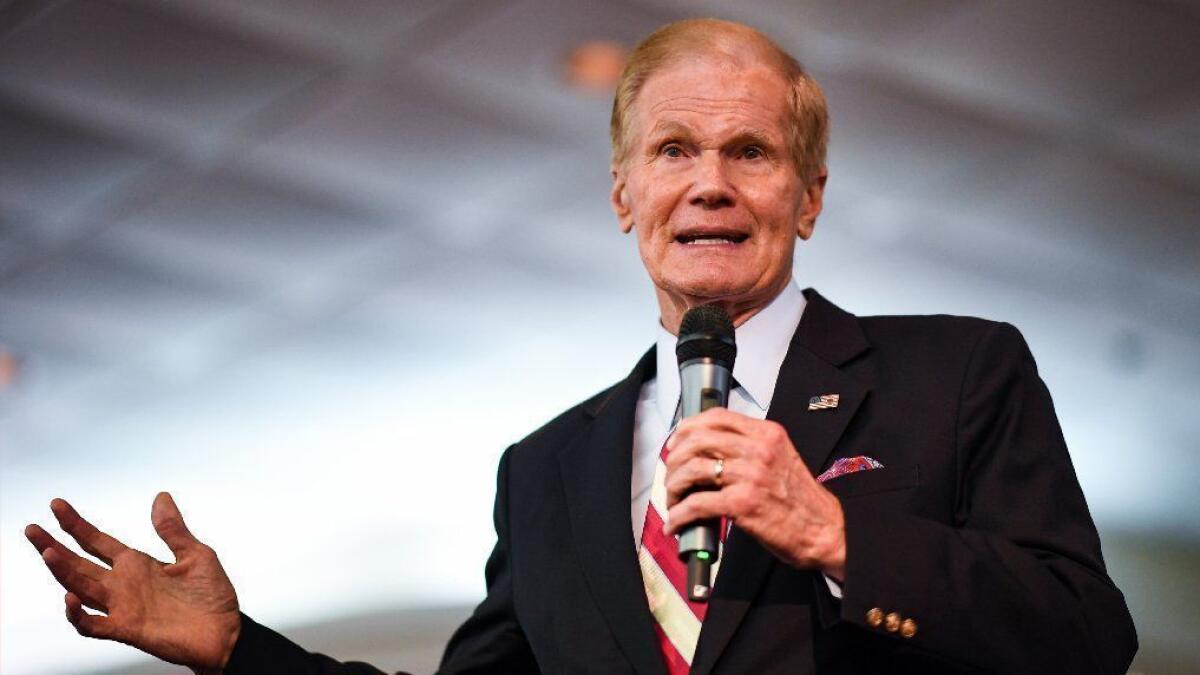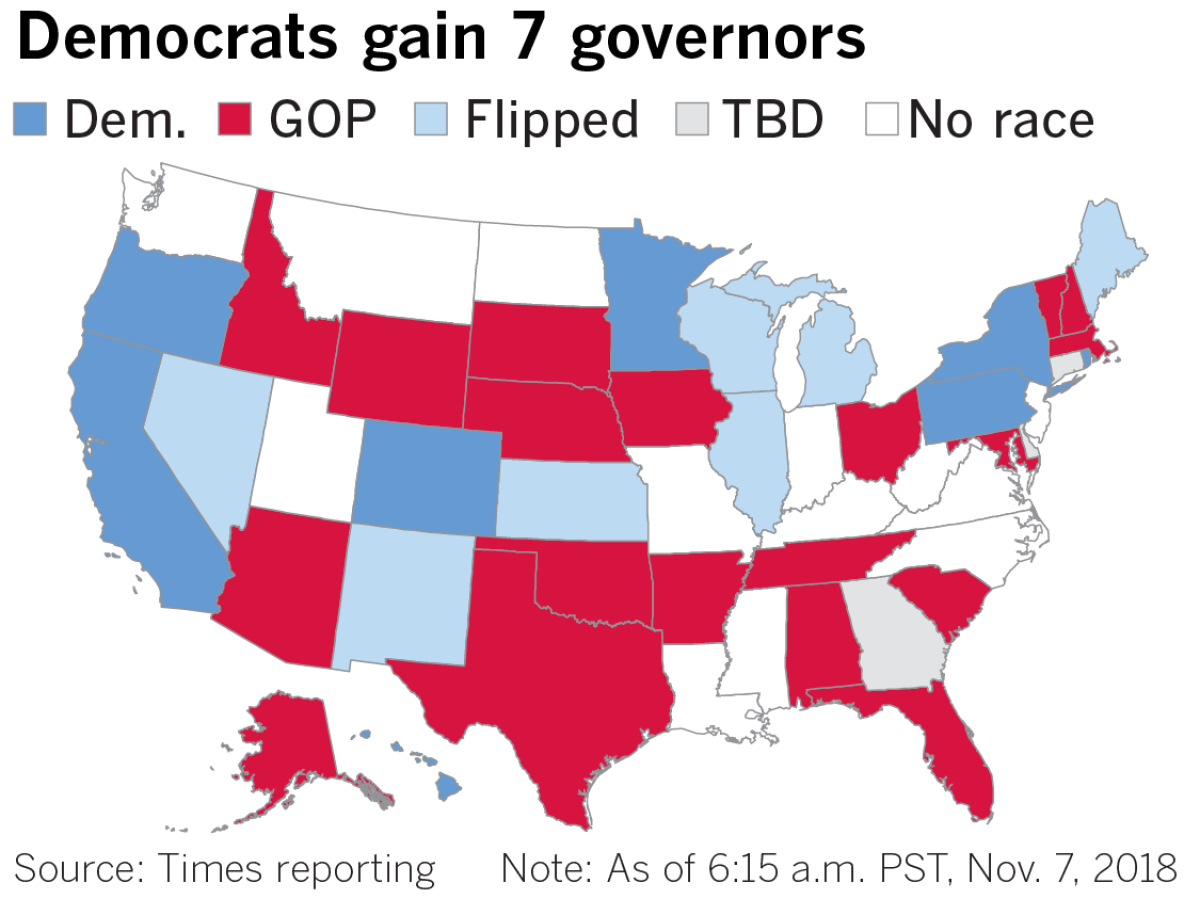Some Senate seats and governors’ mansions remain in the balance Wednesday

- Share via
Reporting from Washington — Republicans held narrow leads in three Senate races that were still not called early Wednesday, leaving the size of the Republican majority in the chamber uncertain the morning after ballots were cast.
The outcome in those races could boost the Republican advantage in the Senate to as wide as 54-46, giving the party a significantly larger cushion as President Trump attempts to expand his hold on federal courts and beat back the incoming Democratic majority in the House.
Before Tuesday’s balloting, Republicans held a tight 51-49 majority in the Senate, leaving little margin for close votes, especially lifetime appointments of federal judges, which both parties see as a priority issue.
The closest Senate race in raw numbers was in Montana, where votes were still being tallied and the lead was switching back and forth between Matt Rosendale, the Republican state auditor, and the incumbent Sen. Jon Tester, a Democrat.
Republicans were also hoping to pick up a Senate seat in Florida. With nearly all the votes counted, the state’s governor, Rick Scott, was leading incumbent Democratic Sen. Bill Nelson by fewer than 35,000 votes.
But with more than 8 million ballots cast in the race, the tally looked close enough to merit an automatic recount in a state that is infamous for the bitterly-fought recount that ultimately decided the 2000 presidential election. Though Scott has declared victory, Nelson said in a Wednesday press release that “we are proceeding to a recount.”
Democrats knocked off only one Republican senator, Dean Heller of Nevada, on Tuesday. Their hope for picking up a second seat rested on Arizona, but Rep. Martha McSally, a Republican, held a lead of nearly 16,000 votes over Rep. Kyrsten Sinema, a Democrat, with 99% of precincts counted.
That seat opened with the retirement of Sen. Jeff Flake, a Republican. Arizona’s recount laws are more restrictive than Florida’s, so the outcome of the race likely will be settled Wednesday.

One governor’s race, in Georgia, also remained in doubt early Wednesday.
Republican Secretary of State Brian Kemp led Stacey Abrams, a former Democratic leader in the state House, by more than 75,000 votes out of nearly 3.9 million cast.
But Abrams was not conceding, hoping to make up enough ground from absentee and other ballots to force a runoff, which is required in the state if Kemp fails to win more than 50% of the vote. A libertarian candidate won just under 1% of the vote there.
Abrams took the stage after 1:30 a.m. to tell hundreds of supporters the fight was not over.
“I’m here tonight to tell you: Votes remain to be counted. There are voices waiting to be heard,” she said. “We believe our chance for a stronger Georgia is just within reach.”
Democrat Ned Lamont won the close Connecticut governor’s race over Bob Stefanowski later in the morning, when Stefanowski called to concede just after 9 a.m.
Democrats got another boost early Wednesday, knocking off Wisconsin’s incumbent governor, Scott Walker. Once considered a rising star in the party, he lost badly in the 2016 presidential primary to Trump.
Before losing a close race to Democrat Tony Evers, Walker had won two terms and beaten back a high-profile recall effort. Trump had hoped to keep Wisconsin, which was crucial to his 2016 general election win, in Republican hands.
Times staff writer Jenny Jarvie in Fayetteville, Ga., contributed to this report.
Follow the latest news of the Trump administration on Essential Washington »
Twitter: @noahbierman
UPDATES:
8:20 a.m.: This article was updated with the latest results in Montana.
This article was originally published at 3:05 a.m.
More to Read
Get the L.A. Times Politics newsletter
Deeply reported insights into legislation, politics and policy from Sacramento, Washington and beyond. In your inbox three times per week.
You may occasionally receive promotional content from the Los Angeles Times.











